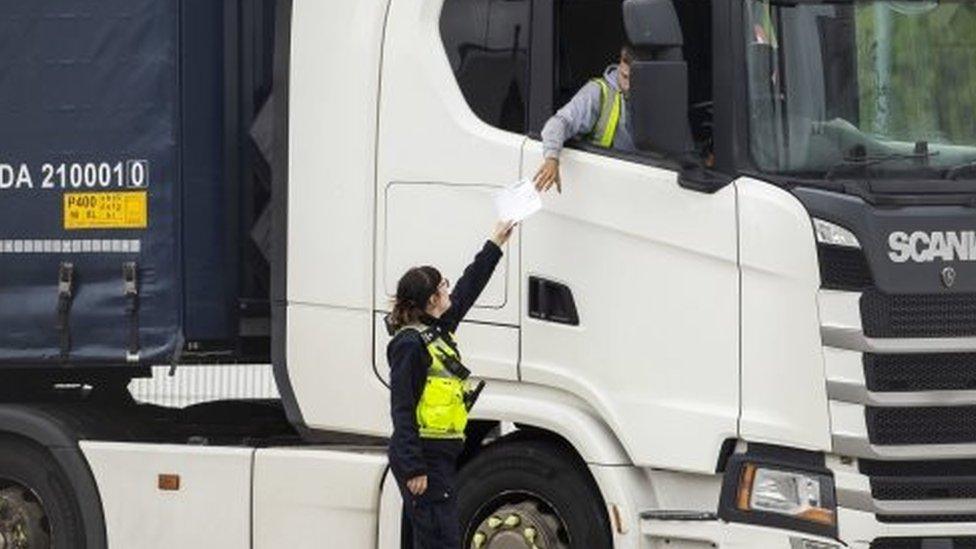Sir Keir Starmer: Protocol can be fixed through hard work
- Published
- comments
Sir Keir Starmer opposes law to change Northern Ireland Protocol
Proposed legislation to disapply part of the Northern Ireland Protocol is not the way forward, Labour Party leader Sir Keir Starmer has said.
Sir Keir accepted there were practical problems with the protocol but said he thought they could be fixed through negotiations, "guile and hard work".
The protocol legislation is expected to be published on Monday.
Sir Keir made the comments in an interview with the BBC after meeting the SDLP and Alliance on Friday.
Unionist parties oppose the Northern Ireland Protocol and say it diminishes their Britishness.
A row over its impact has created a block on forming a devolved government in Northern Ireland, with the DUP blocking the establishment of the assembly since Sinn Féin emerged as the largest party in last month's election
Sir Keir said the planned government legislation would breach international law and that he would scrap it if he became prime minister.
"I also think it will be an impediment to the negotiations," he said.
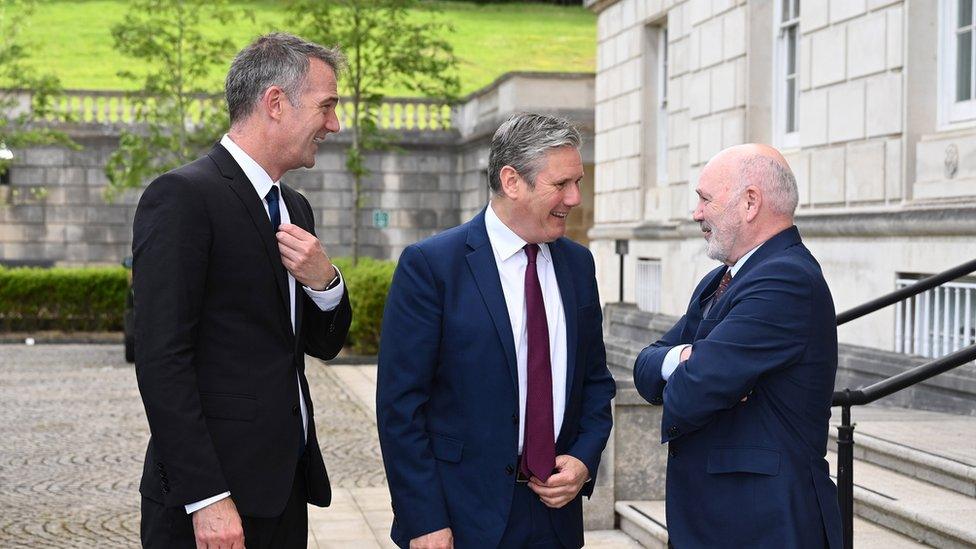
Sir Keir Starmer and Shadow Secretary of State Peter Kyle talk to assembly speaker Alex Maskey at Stormont
Sir Keir said he believed there was scope for a veterinary agreement that would potentially resolve a "high percentage" of the issues in the protocol.
He added: "When I think of all the issues, all the challenges that have been overcome in the last 20 years I don't think that the remaining issues of the protocol are incapable of resolution."
SDLP leader Colum Eastwood said it was refreshing to have a "grown-up in leadership in London engaging properly with political parties here and with the Irish government."
"It's what's been missing, frankly, from this British government over the past number of years. What we've seen from Boris Johnson has been unilateral action on legacy," he added.
"Now, on Monday, we're going to see unilateral action on the protocol, having had no conversations with parties here, no conversations with the Irish government, and just taking a wrecking ball to the progress that we've had."
Alliance leader Naomi Long said reform of the Stormont institutions was necessary to prevent single parties such as the DUP from being able to block the formation of a devolved executive.
'Holding institutions to ransom'
"The issues with the protocol really do not justify the egregious breach of international law and international trust that the government are now embarking on via legislation basically at the behest of the DUP," she said.
"If the government wants to take some legislation forward so that these institutions here can be restored and that they can do that on a stable footing, they should be looking to reform these institutions in legislation to ensure that no party can hold the institutions to ransom going forward."
Sir Keir has also committed to voting against a controversial legacy bill proposed by the government which has seen widespread opposition from local parties and victims' groups.
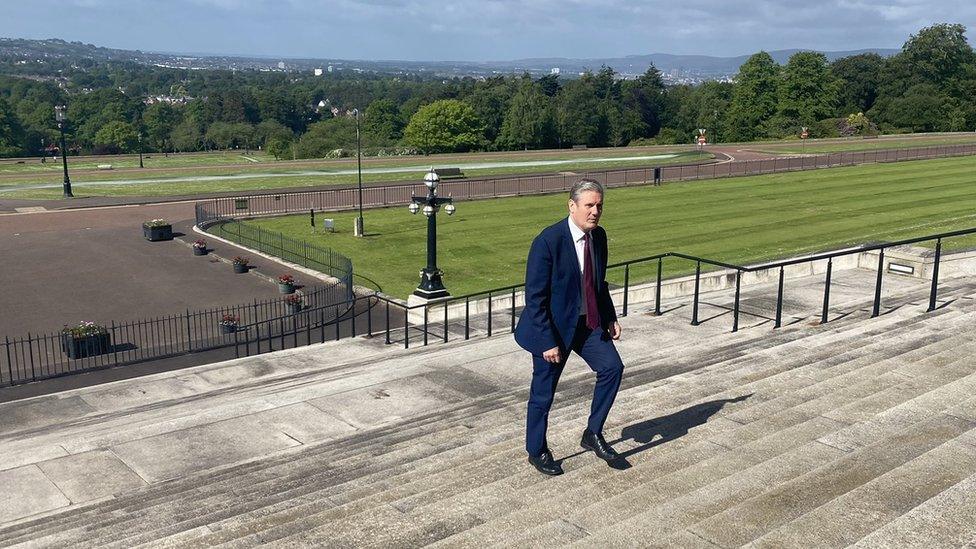
Sir Keir Starmer arriving at Stormont on Friday morning
A central element of the proposals involves immunity from prosecution for those who co-operate with investigations run by a new information recovery body.
What is the protocol?
The trade deal governs how goods enter Northern Ireland from the rest of the UK and was agreed by the UK government and the European Union following the Brexit vote in 2019.

It was designed to prevent a hard border on the island of Ireland when the UK left the European Union.
However, it led to new goods checks at Northern Ireland sea ports on some products from Great Britain, effectively creating a new trade border in the Irish Sea.
Unionist parties, including the DUP, argue that this has led to extra costs and unnecessary delays, as well as undermining the union between Northern Ireland and the rest of the UK.
The DUP, which has the second highest number of Stormont seats, has refused to support the election of a new speaker or first and deputy first minister until there is "action" on the protocol.
The BBC understands there is still some work being done on the legal text of the new protocol bill, which has yet to be signed off by ministers.
Liz Truss is said to be keen for the legislation to get through the Commons before the summer recess.
'Don't ignore benefits'
Meanwhile Conall Donnelly, chief executive of the Northern Ireland Meat Exporters Association (NIMEA) urged the UK government to "not ignore the benefits of the protocol".
Mr Donnelly said its members were heavily dependent on trade from Great Britain to Northern Ireland, with Northern Ireland businesses annually importing about £200m in beef across the Irish Sea for further processing.
He said the current trading arrangements were providing an effective and workable platform for trade and members of the association benefitted from unfettered trade with Great Britain and Europe.
He argued the UK and EU should commit to agreed solutions rather than taking unilateral action which could potentially jeopardise jobs and business opportunities in Northern Ireland.
"We recognise that some aspects of the protocol need to be fixed, such as the facilitation of retail movements or certain food and farming issues but there are solutions to these issues, which can be jointly agreed through compromise, and it is essential that business is involved in that process to ensure that solutions are practical," he said.
Related topics
- Published10 June 2022
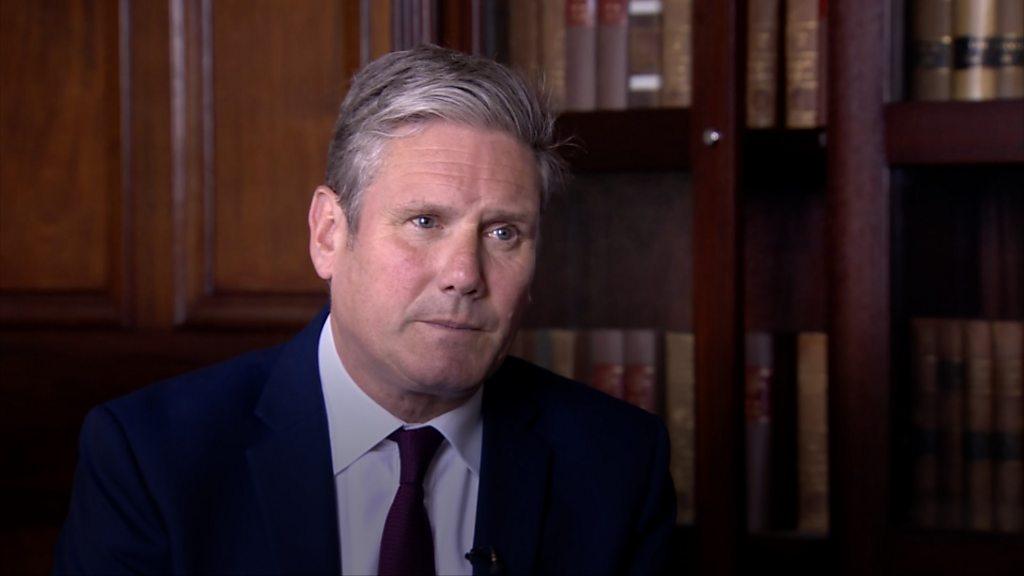
- Published9 June 2022

- Published6 June 2022
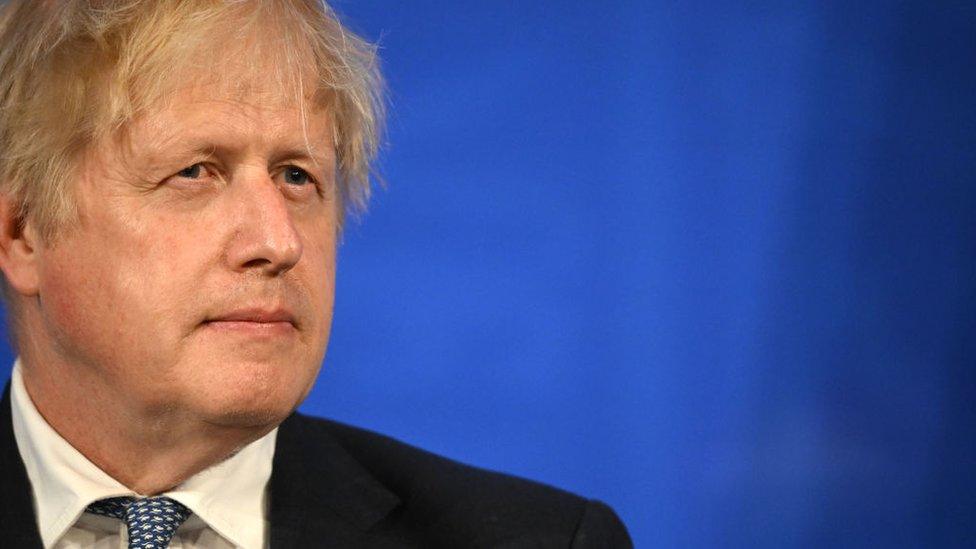
- Published18 May 2022
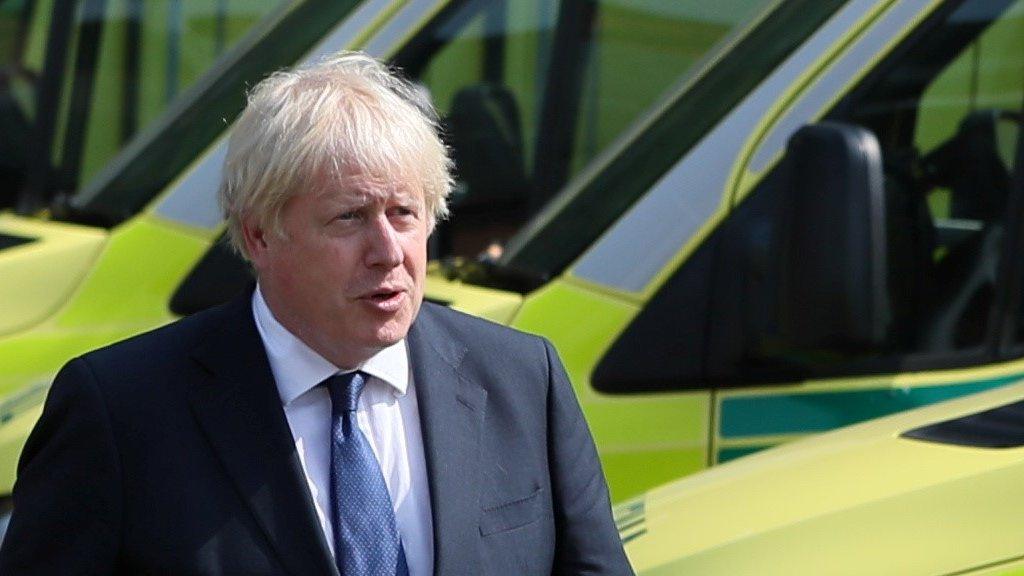
- Published17 May 2022
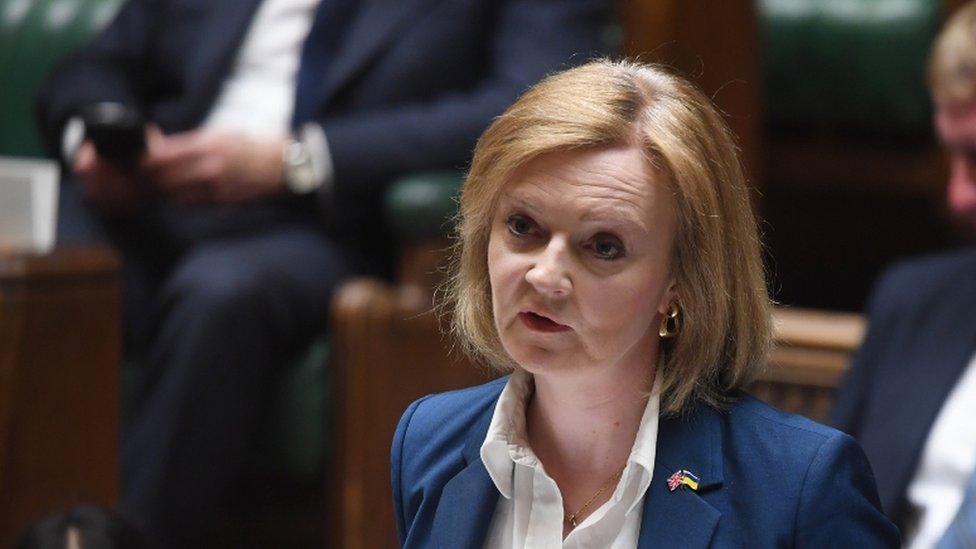
- Published2 February 2024

- Published15 June 2022
